Introduction:
Books provide an excellent medium for expanding one’s understanding of the game and learning from the experiences of successful coaches and players.
For grassroots football coaches around the globe, gaining knowledge and enhancing coaching skills are essential for nurturing talent and improving overall team performance.
In this review, we present the 10 best soccer books for coaches, offering invaluable insights into various aspects of coaching at every level.
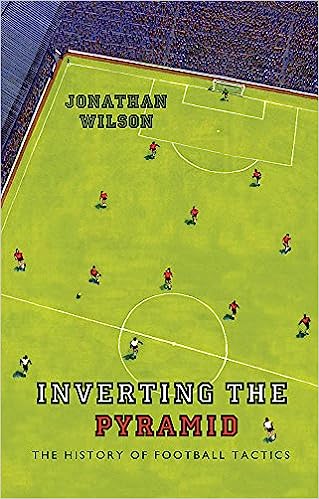
1 – “Inverting the Pyramid: The History of Football Tactics” by Jonathan Wilson:
Jonathan Wilson’s masterpiece takes readers on a journey through the evolution of football tactics.
This book delves into the tactical innovations and philosophies that have shaped the game, providing coaches with a deep understanding of strategic concepts and how they have been applied throughout history.
Pros: Provides a comprehensive understanding of the evolution of football tactics, and offers valuable insights into strategic concepts and their historical application.
Cons: The depth of tactical analysis may be overwhelming for coaches looking for practical guidance.
CLICK HERE for more information
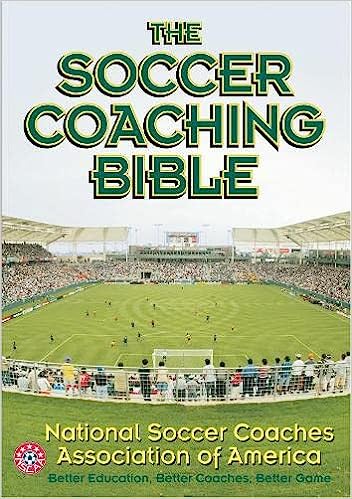
2 – “The Soccer Coaching Bible” by the National Soccer Coaches Association of America (NSCAA):
A compilation of coaching wisdom from top coaches worldwide, this book covers a wide range of topics, including practice sessions, skill development, team management, and match strategies.
It serves as an excellent reference guide for coaches at any level.
Pros: A compilation of coaching wisdom from top coaches worldwide, covers a wide range of coaching topics and serves as a valuable reference guide for coaches at any level.
Cons: Some readers may find the content slightly generalised, lacking in-depth exploration of specific coaching areas.
CLICK HERE for more information
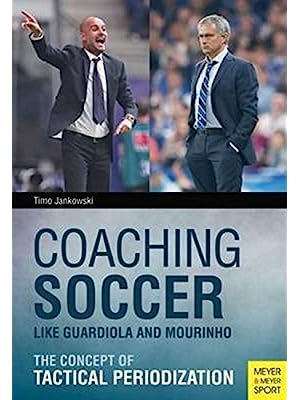
3 – “Coaching Soccer Like Guardiola and Mourinho” by Tony Englund:
Englund explores the coaching styles and methodologies of two renowned managers, Pep Guardiola and Jose Mourinho.
The book provides valuable insights into their approaches to training, tactics, and man-management, offering lessons that can be applied to grassroots coaching.
Pros: Provides insights into the coaching styles and methodologies of two successful managers, and offers practical lessons that can be applied to grassroots coaching.
Cons: Focuses primarily on Guardiola and Mourinho, limiting the range of coaching perspectives explored.
CLICK HERE for more information
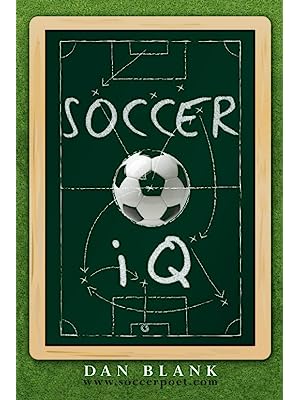
4 – “Soccer IQ: Things That Smart Players Do” by Dan Blank:
Although primarily aimed at players, “Soccer IQ” is a valuable resource for coaches as well.
It focuses on the mental aspects of the game, such as decision-making, anticipation, and positioning, providing coaches with techniques to enhance players’ game intelligence.
Pros: Explores the mental aspects of the game, and offers techniques to enhance players’ decision-making and game intelligence.
Cons: Primarily targeted at players, may require adaptation to suit coaching methodologies.
CLICK HERE for more information
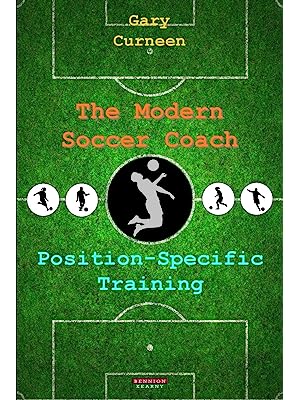
5 – “The Modern Soccer Coach: Position-Specific Training” by Gary Curneen:
Gary Curneen’s book emphasises position-specific training and its importance in player development.
It provides sessions, exercises, and coaching advice for each position on the field, helping coaches tailor their training sessions to improve individual and team performance.
Pros: Focuses on position-specific training, offers drills and coaching advice for each position, and helps coaches tailor training sessions for individual and team improvement.
Cons: Limited emphasis on broader tactical aspects and team dynamics.
CLICK HERE for more information
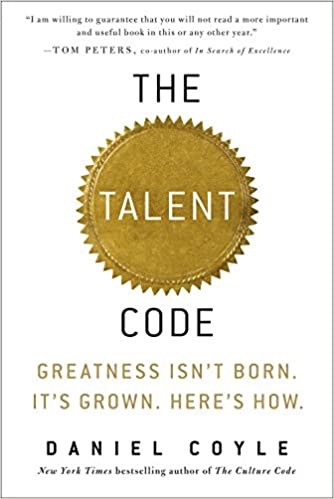
6 – “The Talent Code: Greatness Isn’t Born. It’s Grown. Here’s How.” by Daniel Coyle:
“The Talent Code” explores the science behind skill acquisition and talent development.
Coyle investigates the concept of “deep practice” and shares stories of exceptional athletes, offering valuable insights on how coaches can create an environment that fosters talent growth.
Pros: Explores the science behind skill acquisition and talent development, and provides insights into creating an environment conducive to talent growth.
Cons: Less focused specifically on coaching techniques and more on the science behind skill acquisition.
CLICK HERE for more information
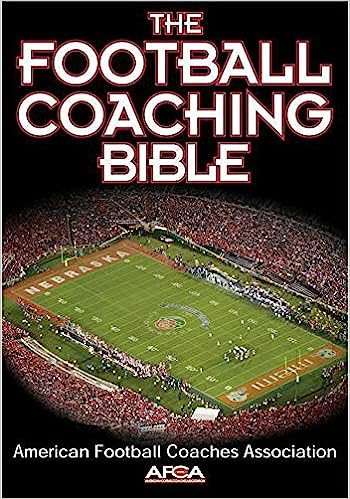
7 – “The Football Coaching Bible” by American Football Coaches Association (AFCA):
While primarily focused on American football, this comprehensive book covers essential coaching principles and strategies that are applicable across sports.
It includes chapters on offensive and defensive tactics, leadership, and team-building, providing a well-rounded coaching education.
Pros: Covers essential coaching principles and strategies, applicable across sports, offers guidance on offensive and defensive tactics, leadership, and team-building.
Cons: Primarily focused on American football, may require adaptation for soccer-specific coaching.
CLICK HERE for more information
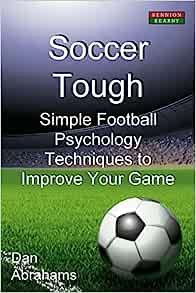
8 – “Soccer Tough: Simple Football Psychology Techniques to Improve Your Game” by Dan Abrahams:
Abrahams dives into the psychology of the game, exploring techniques to develop mental resilience (I have another article on this topic of developing resilience, confidence, focus, and motivation in players.
This book equips coaches with the knowledge to nurture players’ psychological skills alongside their physical abilities.
Pros: Explores the psychology of the game, and provides techniques to develop mental resilience, confidence, focus, and motivation in players.
Cons: Some coaches may desire more in-depth exploration of psychological strategies.
CLICK HERE for more information
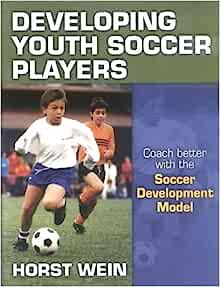
9 – “Developing Youth Football Players” by Horst Wein:
As the title suggests, this book focuses on youth player development.
Wein shares his philosophy and training methods for young players, emphasising the importance of age-appropriate training, skill acquisition, and creating a positive learning environment.
Pros: Focuses on youth player development, emphasises age-appropriate training and skill acquisition, and promotes a positive learning environment.
Cons: Primarily targeted at youth coaching, may have limited application for coaches working with older players.
CLICK HERE for more information
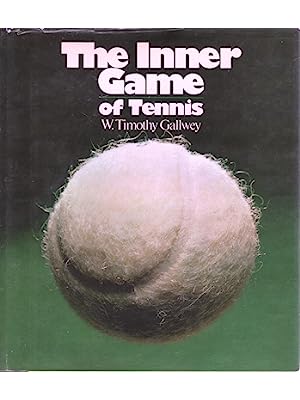
10 – “The Inner Game of Tennis” by W. Timothy Gallwey:
Although not specifically about soccer, this classic book delves into the mental side of sports.
It explores the concept of self-doubt, focus, and the relationship between the mind and body in performance. Coaches can extract valuable insights and adapt the principles to their sport.
Pros: Explores the mental side of sports, and offers insights into self-doubt, focus, and the mind-body connection in performance.
Cons: Not specifically about soccer, may require adaptation to suit football coaching context.
CLICK HERE for more information
Additional recommendation:
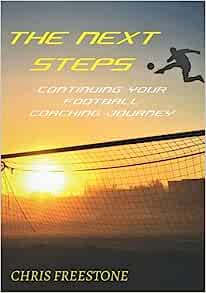
“The Next Steps: Continuing Your Football Coaching Journey” by Chris Freestone:
I couldn’t do a review on books and not include my own. This was an actual review of my book and not made up.
In “The Next Steps,” Chris Freestone offers a practical guide for coaches looking to progress in their coaching careers.
This book covers various aspects that coaches often encounter as they advance, including advanced training techniques, match analysis, player development, and building a successful coaching philosophy.
What sets “The Next Steps” apart is its focus on personal growth and self-reflection.
Freestone encourages coaches to assess their coaching philosophy, values, and leadership styles, enabling them to evolve and adapt their approach to suit different contexts and players.
Overall, “The Next Steps” is an indispensable resource for coaches who aspire to take their coaching careers to new heights.
With its practical advice, comprehensive coverage of various coaching aspects, and emphasis on self-improvement, this book equips coaches with the tools and knowledge they need to continue their journey towards becoming exceptional football coaches.
Pros: Provides practical guidance for coaches looking to progress in their coaching careers, and covers various coaching aspects including advanced training techniques, match analysis, and player development.
Cons: Primarily targeted at less experienced coaches, therefore, it may have limited application for those coaches with more knowledge of the game.
CLICK HERE for more information
Conclusion:
In the world of grassroots football coaching, continuous learning and personal growth are essential for coaches aiming to make a lasting impact on their players and teams.
The 10 books reviewed here, along with the additional recommendation of “The Next Steps” by Chris Freestone, provide a rich tapestry of knowledge, insights, and strategies for coaches at every level.
By immersing yourself in these books, any coach can gain a deeper understanding of the game’s history, tactics, psychology, and player development.
You can learn from the experiences and wisdom of renowned coaches and experts, and apply those lessons to your coaching methodologies.
However, reading alone is not enough. To truly benefit from these books, you must actively engage with the material, reflect on your coaching practices, and implement the ideas and strategies that resonate with your coaching philosophy.
It is through the combination of knowledge, experience, and continuous improvement that all coaches can genuinely elevate their coaching abilities.
Therefore, we urge all grassroots football coaches across the globe to seize the opportunity presented by these must-read books.
Dive into the pages, absorb the wisdom, and embrace the insights they offer. Use this knowledge to refine your coaching techniques, inspire your players, and create an environment that fosters growth, development, and success.
Remember, the journey of a coach is a never-ending one. As you delve into these books, consider it just the beginning.
Seek out further educational opportunities, connect with fellow coaches, and stay curious about the ever-evolving world of football coaching.
By constantly striving to expand your knowledge, you will not only become a better coach but also make a profound impact on the lives of your players.
So, embrace the power of these soccer books, and let them propel you forward on your coaching journey, one page at a time.


